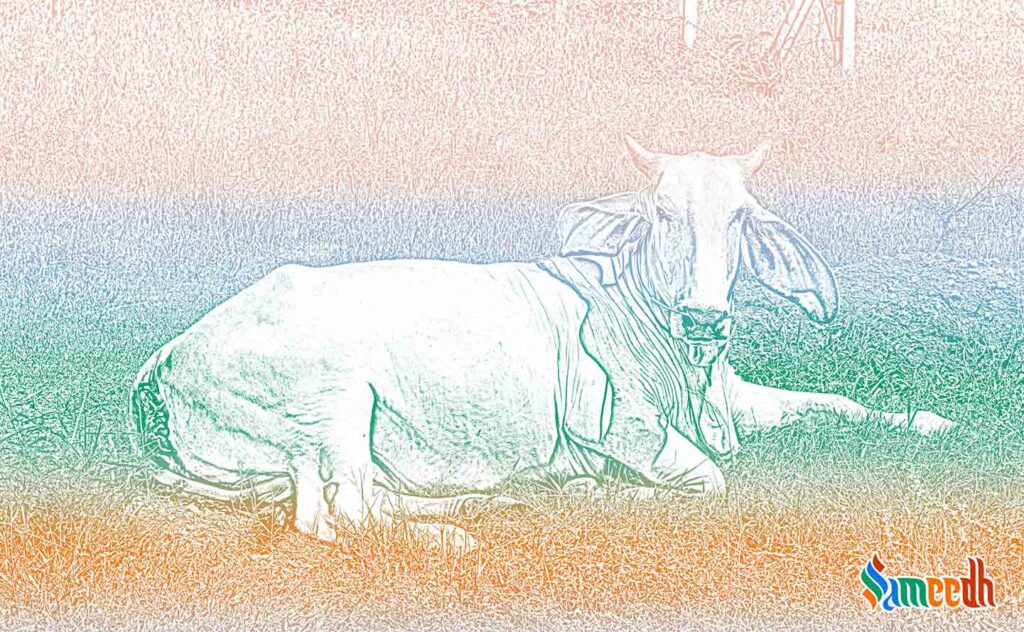Considered a symbol of divinity and the bountiful earth, the holy cow also bears a mythological significance. The blog gives interesting accounts of the cow’s sacredness, its mythological reverence, and the benefits of its products.

Indian customs and traditions bear a deep-rooted correlation with in-depth mythological significance and firm beliefs which have been carried forward since ancient times. Auspicious rituals are followed religiously and Hindu symbols hold pivotal ground for its authenticity and attached significance.
ORIGIN
Cow, one such Hindu symbol, is considered holy and revered by millions of Hindus. In Hinduism, the mother is compared to that of a goddess, it’s given the highest pedestal and highest form of respect. The cow has maternal instincts, it gives milk, thus it bears the status of a mother, holds a high form of respect, it is seen as an entity that takes care of people.
Considered a symbol of divinity and the bountiful earth, it has a mythological significance too. Lord Krishna, the popular Hindu deity, was believed to be a cow herder. Often imagery of Lord Krishna playing with his flute and surrounded by Gopis is shown in abundance in all mythological texts, including being called Govinda and Gopala, which means protector of cows and the one who befriends cows! The ritual of feeding the cows even before eating one’s own morning meal is considered auspicious
SYMBOL
The Kamdhenu & its symbolism
There are interesting details about the Kamadhenu, it is believed there are various deities depicted in various forms across the body of the Kamdhenu. Brahma, it is believed is depicted on its hump, her four legs symbolize the Vedas, and stand for the Himalayas, Agni (fire god) and Vayu (wind God) are depicted through her shoulders, cows are associated with Vishnu, in puranic texts. Vishnu is known as the cow’s guardian, and protector. Cow also bears a correlation with the goddess of wealth; it is considered a symbol of Lakshmi.
IMPORTANCE
Why is the cow worshipped? – A mythological account
Kamdhenu, a cow goddess, it was believed, emerged from the churning of the cosmic ocean. Considered as bestowing plentiful riches on her owner, the Kamdhenu has several instances and is mentioned in the holy scriptures, Mahabharat and Bhagwad Gita. Ingredients required for Vedic fire sacrifices like milk, clarified butter, etc. are produced from the Kamdhenu, therefore, in few Vedic scriptures, it is also termed as the ‘Homadhenu’.
Cows, considered the mortal incarnation of the Kamdhenu, hold great importance and carry the sacred symbolism, likewise. They are well taken care of, their welfare, donations done with the purpose of keeping them safe and comfortable, praying to the cow, offering fodder, etc. are rituals considered auspicious in Hindu culture.
ANCIENT AND RELIGIOUS PRACTICES
A Sacred Animal with varied uses of its products
Cow, as enumerated, has various inferences in mythological scriptures since ancient times. Moreover, the usefulness of its products, the nutritive value, the productivity, and maternal selflessness are virtues and benefits that are unique and has thus acquired the highest form of respect and a sacred symbol. Be it urine, cow dung, milk, or its derivatives, Hindus utilize these products and are vital aspects of their routine lives for medicine, food, fuel, etc. they have scientifically proven benefits and play an integral role in religious rituals, festivals, ceremonies, etc.
Gifting a Cow in ancient times
In ancient times, there was a prevalent custom of gifting cows to the priestly class, the brahmins, as cows were considered productive and highly valued. Thus killing a cow was equivalent to killing a brahmin, considered the highest form of sin. The slaughter of cows was prohibited by the Hindu rulers in the Indian provinces during the 20th century, thus raising the status of the cows and elevating its holy symbolism even further.
For more such interesting accounts of Hindu symbols and interesting facets of Hinduism, stay tuned to Sameedh! Browse more, and get enriching knowledge about the versatile Indian aspects and Hindu customs and traditions.
